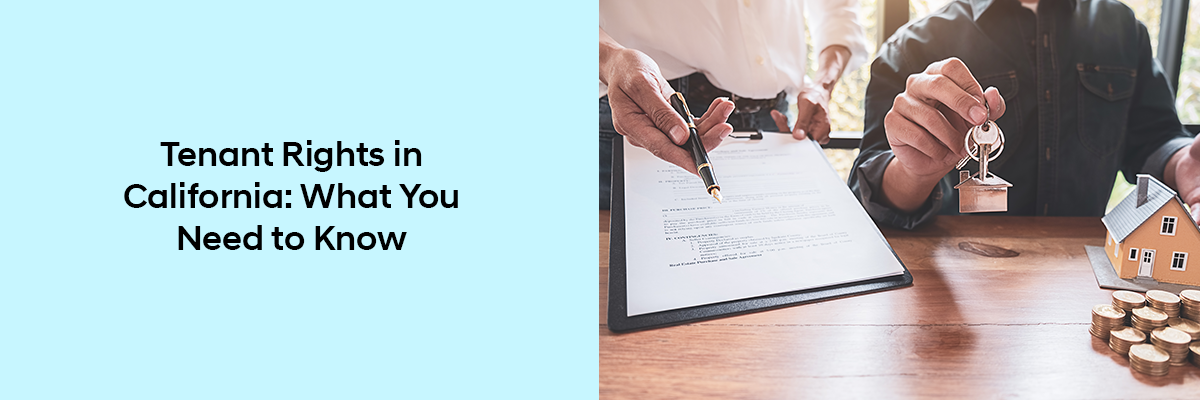Navigating the complexities of renting a home in California requires tenants to understand their rights and responsibilities under state law. With one of the most comprehensive sets of tenant protections in the United States, California ensures a balanced relationship between landlords and renters.
Here’s an overview of key tenant rights you need to know.



1. Right to a Habitable Home
California law mandates that all rental properties must be fit for human habitation. This includes:
- Proper plumbing and heating systems.
- Safe electrical wiring.
- Structural integrity of the property.
- Adequate weatherproofing.
If a landlord fails to address habitability issues after being notified, tenants may have the right to withhold rent, repair the problem themselves and deduct costs, or move out without penalty.
2. Rent Control and Rent Increases
Under California’s Tenant Protection Act (AB 1482), annual rent increases are capped at 5% plus the local inflation rate, or 10%, whichever is lower. However, this law applies to:
- Buildings older than 15 years.
- Multi-family units, not single-family homes unless owned by a corporation.
Cities like Los Angeles, San Francisco, and Oakland have additional local rent control ordinances with stricter limits.
3. Security Deposits
California law restricts how much a landlord can charge for a security deposit:
- Unfurnished units: Two months’ rent.
- Furnished units: Three months’ rent.
Landlords must return the deposit within 21 days after the tenant moves out, minus deductions for unpaid rent or damages beyond normal wear and tear.
4. Privacy Rights
Tenants have the right to privacy in their homes. A landlord must provide 24-hour written notice before entering a rental unit for inspections, repairs, or showing the property to prospective tenants. Exceptions include emergencies or when the tenant gives consent.
5. Protection Against Discrimination
Under California’s Fair Employment and Housing Act (FEHA) and federal laws like the Fair Housing Act, landlords cannot discriminate against tenants based on:
- Race, color, or national origin.
- Religion or sex.
- Family status or disability.
Landlords also cannot refuse to rent to tenants who use Section 8 housing vouchers or other forms of public assistance.
6. Eviction Protections
California tenants are protected against unfair evictions under the Just Cause Eviction Law (part of AB 1482). Landlords must provide a valid reason, such as:
- Non-payment of rent.
- Breach of lease terms.
- The landlord’s intent to move into the property.
In addition, tenants affected by no-fault evictions are entitled to relocation assistance or rent waivers equal to one month’s rent.
7. Repairs and Maintenance
Tenants have the right to request repairs for essential issues like plumbing leaks, broken heaters, or pest infestations. If a landlord fails to act promptly, tenants can pursue remedies such as:
- Filing a complaint with local housing authorities.
- Completing repairs and deducting the cost from rent (with proper documentation).
8. Right to Break a Lease
California law allows tenants to break a lease without penalty under certain conditions:
- The tenant is a victim of domestic violence, stalking, or sexual assault.
- The property is deemed uninhabitable.
- The landlord has violated the lease terms.
Tenants are required to provide written notice and may be responsible for rent until a replacement tenant is found.
9. COVID-19 Tenant Protections
California introduced temporary protections during the COVID-19 pandemic to prevent evictions for non-payment of rent. While most of these protections have expired, tenants can still inquire about assistance programs for unpaid rent.
10. Where to Seek Help
Tenants facing legal issues or disputes can seek assistance from organizations like:
- California Department of Consumer Affairs (DCA).
- Legal Aid Foundation of Los Angeles.
- Housing Rights Center.
For additional resources, tenants can also explore fair housing webinars to better understand their rights, learn about housing policies, and gain practical tips for navigating rental challenges.
Final Thoughts
Understanding your rights as a tenant in California can empower you to maintain a fair and respectful relationship with your landlord. By staying informed and knowing where to turn for help, you can protect yourself against unfair practices and ensure your housing experience is secure and comfortable.
If you’re currently renting or planning to move to California, familiarize yourself with these rights and consult a legal professional for specific concerns.


